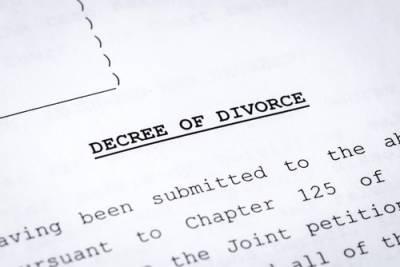Recent Blog Posts
Division of Art in a High Asset Divorce
 Many couples who get divorced are able to agree on who will retain what property. However, the more unusual assets and collectibles a couple has, the harder it becomes to appraise them and determine who should retain ownership, especially when an item has an extremely high value or has a special meaning to one of the spouses. While this could include jewelry, as well as antiques, more and more families are investing in artwork, which means that in most cases, if the couple divorces, the property will need to be divided equitably.
Many couples who get divorced are able to agree on who will retain what property. However, the more unusual assets and collectibles a couple has, the harder it becomes to appraise them and determine who should retain ownership, especially when an item has an extremely high value or has a special meaning to one of the spouses. While this could include jewelry, as well as antiques, more and more families are investing in artwork, which means that in most cases, if the couple divorces, the property will need to be divided equitably.
Appraisals and proof of purchase are critical to the outcome of these types of conflict, as courts consider property obtained prior to a marriage to be the sole property of the original owner. Even when a piece of art was purchased after divorce, one party could have a strong claim to it if it was given as a gift or was part of an inheritance. Because dividing unusual assets, such as artwork, is so difficult, retaining an experienced high asset divorce attorney is critical to ensuring that all of a couple’s property is fairly and promptly divided upon divorce.
What Happens to a Professional Practice During Divorce?
 Having a professional practice can make the divorce process much more difficult, as the parties are usually required to value and divide not only personal property but also professional assets and business interests. These types of challenges are best handled by an experienced high asset divorce attorney, so if you have decided to file for divorce and either you or your spouse has a professional practice, please contact our legal team for an initial evaluation of your case.
Having a professional practice can make the divorce process much more difficult, as the parties are usually required to value and divide not only personal property but also professional assets and business interests. These types of challenges are best handled by an experienced high asset divorce attorney, so if you have decided to file for divorce and either you or your spouse has a professional practice, please contact our legal team for an initial evaluation of your case.
Dividing Marital Property
Under Texas law, couples who dissolve their marriages must divide all marital assets equitably. This applies to the contents of bank accounts, retirement funds, stocks, real estate, personal belongings, and even business interests. In fact, even when a spouse doesn’t have a specific interest in a business, as is usually the case when one spouse runs a professional practice, he or she could still have a claim to a portion of the business’s value, although not to the practice itself.
Types of Spousal Support in Texas
 Although spousal support is usually described merely as alimony, there are actually three types of spousal support recognized under Texas law. Each type comes with its own set of conditions and requirements, which determines who is eligible to receive support and for how long they can continue receiving it. If you are going through a divorce and have concerns about your financial future, you should consider consulting with an experienced high asset divorce lawyer who can help you determine whether you qualify for spousal support.
Although spousal support is usually described merely as alimony, there are actually three types of spousal support recognized under Texas law. Each type comes with its own set of conditions and requirements, which determines who is eligible to receive support and for how long they can continue receiving it. If you are going through a divorce and have concerns about your financial future, you should consider consulting with an experienced high asset divorce lawyer who can help you determine whether you qualify for spousal support.
Temporary Spousal Support
Temporary spousal support is usually granted by the court when one party is unable to financially support him or herself while the divorce is still pending. Temporary alimony payments can be made every month or in a lump-sum payment. Which type of payment, how much the recipient is eligible to collect, and for how long he or she can continue receiving payments depends on a number of factors, including each party’s ability to support him or herself, each spouse’s employment skills, and both party’s earning ability.
Divorce and the Family Business
 Most people don’t enter into marriage with the expectation that they will later get divorced. Similarly, couples who start businesses together usually do not anticipate running into any obstacles regarding ownership and control. The reality, however, is that many couples who are also business owners will face complicated issues in the event of a divorce, so if you and your spouse are contemplating divorce and you both share an interest in a family business, we strongly encourage you to speak with an experienced high asset divorce attorney who can explain your legal options.
Most people don’t enter into marriage with the expectation that they will later get divorced. Similarly, couples who start businesses together usually do not anticipate running into any obstacles regarding ownership and control. The reality, however, is that many couples who are also business owners will face complicated issues in the event of a divorce, so if you and your spouse are contemplating divorce and you both share an interest in a family business, we strongly encourage you to speak with an experienced high asset divorce attorney who can explain your legal options.
Retaining Co-ownership
Once a couple who owns a family business decides to get a divorce, they must start addressing the future of the company. For some couples, retaining co-ownership is a good option, especially for those who are deeply committed to their enterprise. However, it can be difficult to maintain a close working relationship with an ex-spouse, although many business owners are able to do so through careful scheduling and focusing only on the business aspects of their relationship.
Modifying Your Divorce Decree
 When a divorce is finalized, the court sets the terms of child support, spousal maintenance, and visitation. Although these terms are generally deemed final, there are situations where courts are willing to modify a divorce decree. If you believe that your child custody arrangement or support agreement should be modified, it is important to contact a high asset divorce lawyer who can help you modify your divorce decree.
When a divorce is finalized, the court sets the terms of child support, spousal maintenance, and visitation. Although these terms are generally deemed final, there are situations where courts are willing to modify a divorce decree. If you believe that your child custody arrangement or support agreement should be modified, it is important to contact a high asset divorce lawyer who can help you modify your divorce decree.
Mutual Agreement
One of the easiest ways to modify an order related to child custody, child support, or alimony is by mutual agreement. In these cases, both parties file a petition with the court that contains the agreed upon changes. As long as those changes are in the best interests of the couple’s children and the judge approves them, the previous divorce decree can be altered, usually without any hearings or trials.
Changed Circumstances
Dividing Stock-Related Assets
 Couples who divorce in Texas must divide their assets on an equitable and fair basis. This includes bank account funds, vehicles, real estate, personal property, retirement funds, and even debt. However, property division can become difficult when a diverse range of assets are involved. For example, many high asset divorces involve the division of stock options, which are divisible in some, but not all situations. If you own stock options and are concerned about how or if they will be divided upon divorce, please contact an experienced Cedar Park high asset divorce attorney who can explain your options.
Couples who divorce in Texas must divide their assets on an equitable and fair basis. This includes bank account funds, vehicles, real estate, personal property, retirement funds, and even debt. However, property division can become difficult when a diverse range of assets are involved. For example, many high asset divorces involve the division of stock options, which are divisible in some, but not all situations. If you own stock options and are concerned about how or if they will be divided upon divorce, please contact an experienced Cedar Park high asset divorce attorney who can explain your options.
Separate Property Calculations
Like any other type of property owned by a couple, stocks can be divided during divorce, but only if they are considered marital property. If, for instance, a spouse owned stock as separate property prior to the marriage, he or she could retain sole ownership of those stocks. However, this only applies if the spouse participates in a stock option plan that is provided by their employer and the option or stock was granted before the marriage, but needed to continuously remain employed during the marriage before the option could be exercised. In these cases, the spouse’s interest will be equal to the fraction of the option in which the numerator is the sum of:
Preserving Financial Interests Through Mediation
 Dividing marital assets can be one of the most contentious issues in a Texas divorce, especially when a significant amount of money is at stake. In many cases, couples must resort to litigation and have a judge issue an order directing them as to how their assets should be divided. Litigating a divorce in court can be expensive, time-consuming, and emotionally draining, so it is important for couples to remember that it is possible to avoid litigation completely and reach a fair settlement through mediation. This option allows couples to maintain more control over the terms of their final arrangement, while also saving them time and money. For more information on whether mediation is right for you, please contact one of our Georgetown high asset divorce attorneys at your earliest convenience.
Dividing marital assets can be one of the most contentious issues in a Texas divorce, especially when a significant amount of money is at stake. In many cases, couples must resort to litigation and have a judge issue an order directing them as to how their assets should be divided. Litigating a divorce in court can be expensive, time-consuming, and emotionally draining, so it is important for couples to remember that it is possible to avoid litigation completely and reach a fair settlement through mediation. This option allows couples to maintain more control over the terms of their final arrangement, while also saving them time and money. For more information on whether mediation is right for you, please contact one of our Georgetown high asset divorce attorneys at your earliest convenience.
Property Division Settlement
How the Dissipation of Assets During Divorce Can Affect Your Future
 Even those who have seen their divorce coming for many years may still find themselves fearful and financially unprepared for life after divorce. Although the transition will most likely be emotional, there are ways to ensure that both parties receive their fair share of marital assets and so are not faced with financial difficulties. Doing so often requires an in-depth search of financial records, which although stressful and difficult, will help make it difficult for one spouse to hide or waste assets. Wasting, or dissipating assets is unfortunately not uncommon during high asset divorce, especially when the relationship between the parties is strained or acrimonious. For help protecting your own financial interests, please contact a member of our dedicated Leander high asset divorce legal team for advice.
Even those who have seen their divorce coming for many years may still find themselves fearful and financially unprepared for life after divorce. Although the transition will most likely be emotional, there are ways to ensure that both parties receive their fair share of marital assets and so are not faced with financial difficulties. Doing so often requires an in-depth search of financial records, which although stressful and difficult, will help make it difficult for one spouse to hide or waste assets. Wasting, or dissipating assets is unfortunately not uncommon during high asset divorce, especially when the relationship between the parties is strained or acrimonious. For help protecting your own financial interests, please contact a member of our dedicated Leander high asset divorce legal team for advice.
What Is Asset Dissipation?
Unlike the hiding of assets, intentional dissipation involves the use of marital funds, or a marital asset, for a purpose that does not benefit the marriage. This often takes the form of buying extravagant gifts or otherwise making lavish and unnecessary purchases for the buyer’s own benefit. In fact, dissipation can even take the form of transferring property to a third party or suffering excessive gambling losses. It is also important to note that dissipation of assets is not just a continuation of typical overspending, but is waste that starts after the decision to get divorced is made.
Preparing for a High Asset Divorce
 Divorce can be a difficult process, no matter how respectful and amicable the parties are to each other. This is especially true in cases where substantial assets are involved, as it can be extremely difficult to account for and divide a diverse range of property and valuables. If you need help preparing for your own divorce, you should strongly consider speaking with an experienced high asset divorce attorney who can assist you.
Divorce can be a difficult process, no matter how respectful and amicable the parties are to each other. This is especially true in cases where substantial assets are involved, as it can be extremely difficult to account for and divide a diverse range of property and valuables. If you need help preparing for your own divorce, you should strongly consider speaking with an experienced high asset divorce attorney who can assist you.
Diverse Assets
One of the most difficult aspects of high asset divorces is identifying and fairly distributing assets, which could include:
- Real estate;
- Investments;
- Retirement accounts;
- Business ownership interests;
- Copyrights and trademarks; and
- Personal property, such as antiques or automobiles.
Texas is a community property state, which means that assets obtained after a marriage must be divided equitably upon divorce. Separate property obtained prior to the marriage, on the other hand, will remain in the sole possession of the original owner. For this reason, identifying assets and determining when they were purchased or received is critical to the outcome of a divorce.
Valuing Real Estate
 Couples with high assets face a number of unique issues that other divorcing couples do not. This is largely due to the fact that these individuals have a variety of different assets that must be identified, valued, and then divided. In many cases, this also means that the parties own multiple pieces of real estate, including vacation homes, as well as rental properties, which in turn, raises a host of issues.
Couples with high assets face a number of unique issues that other divorcing couples do not. This is largely due to the fact that these individuals have a variety of different assets that must be identified, valued, and then divided. In many cases, this also means that the parties own multiple pieces of real estate, including vacation homes, as well as rental properties, which in turn, raises a host of issues.
For instance, both parties may wish to remain in possession of a single property, or one party may wish to sell it and divide the proceeds. However, before these decisions can even be made, the parties will need to obtain an accurate valuation. This can also be a difficult process, as there are a variety of different ways to value property, making it especially important for those who own real estate and are going through a divorce to speak with an experienced Round Rock high asset divorce attorney who can ensure that their property is properly evaluated.




 512-610-6199
512-610-6199
